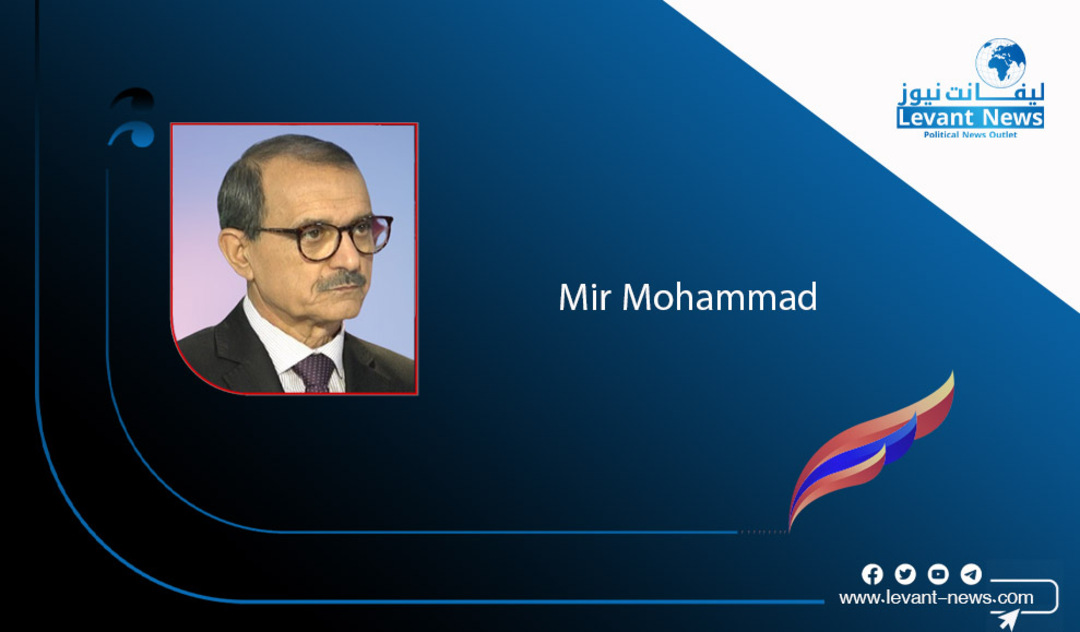-
The Crisis of Nuclear Negotiations and Khamenei's Dual Role

News related to the nuclear negotiations is plunging the Iranian regime into a whirlpool of internal and external crises. These crises are not limited to a specific faction within the government but encompass the entire regime, worsening over time. Signs of these crises can be seen in the speeches of Friday prayer leaders, responses from parliamentary deputies, and contradictions in officials' statements.
The Major Challenge for the Regime
The Iranian regime established its identity from the beginning with the creation of the Revolutionary Guard and fiery slogans built on animosity towards other countries and expanding influence in the region. Slogans like "the Great Satan" regarding the United States and hostility towards it have made negotiations with this country a significant challenge for the regime. Pressures from economic sanctions, international isolation, failures in the region, and military threats have pushed it to the negotiation table. This contradiction between slogans and actions has placed the regime in a difficult position, exacerbated by the negotiations in Oman. The ongoing nuclear talks, whether direct or indirect, resemble a double-edged sword for the regime. Accepting negotiations means retreating from fiery slogans, seen as a display of weakness before the "enemy." Conversely, rejecting them may lead to increased sanctions, greater isolation, or even military conflict. This duality deepens internal divisions within the regime and presents new crises.
Internal Disagreements in Speeches and Parliament
The speeches of Friday prayer leaders on April 22, 2024, clearly display these crises. Ahmad Alamolhoda, Khamenei's representative in Mashhad, criticized the negotiations, citing the previous agreement (the nuclear deal) and expressed distrust of the United States. He scoffed at the negotiations, stating that America had not fulfilled its commitments. These statements reflect concerns about weakening the regime's position if a settlement is reached. In Tehran, Kazem Sadeghi described the negotiations as dangerous, considering the United States an untrustworthy enemy. In Hamedan, Mohammad Ali Shahbani warned of the risks of division within society, calling for trust in the regime's decisions. These statements are attempts to maintain apparent unity amid internal and external pressures, but they reflect fears of internal divisions and growing public discontent.
In parliament, these crises are more visibly displayed. Mahdi Kouhchizadeh, a Tehran deputy, described the Oman negotiations as ambiguous, stating that deputies lack sufficient information. He spoke of the necessity to distinguish between friends and enemies. These statements reflect the dissatisfaction of some factions and a diminishing role for parliament in major decision-making.
Consequences of the Negotiations
Whether the nuclear negotiations succeed or fail, they will have heavy repercussions for the regime. If an agreement is reached, the regime will have to retreat from its previous slogans, likely diminishing the support of its backers. Hardline factions, which view negotiations as capitulation, may openly oppose Khamenei, further increasing internal divisions. If the negotiations fail, the regime will face harsher sanctions, military pressures from Israel and the United States, and growing internal resentment. The experience of the previous nuclear agreement has shown that the regime did not achieve its goals in past negotiations.
Khamenei's Role
Ali Khamenei plays a complex role in this crisis. On one hand, he agrees to negotiations to alleviate economic and international pressures, while on the other hand, he avoids bearing direct responsibility through silence or ambiguous statements. However, this strategy is no longer as effective as it once was. Internal and external pressures, along with the resentment of officials, weaken his position. Kouhchizadeh's statements about the deputies lacking information reveal a lack of trust even among those close to the regime.
Opportunity or Threat?
The ongoing nuclear negotiations pose more of a threat than an opportunity for the regime. At the same time, these crises provide an opportunity for the angry Iranian populace to protest against the regime. General discontent and the regime's repeated failures pave the way for the expansion of social protests. What is observed in the speeches of Friday prayer leaders and parliament indicates deep crises within the regime, which is no longer able to address major challenges.
In summary, the Iran-U.S. negotiations in Oman have placed the Iranian regime in one of the most challenging phases of its history. Internal disagreements, contradictions in officials' statements, and an inability to make decisive decisions illustrate the depth of these crises. The statements of Alamolhoda, Sadeghi, and parliamentary deputies are merely part of these larger issues.
Mir Mohammadi System
You May Also Like
Popular Posts
Caricature
BENEFIT Sponsors Gulf Uni...
- April 17, 2025
BENEFIT, the Kingdom’s innovator and leading company in Fintech and electronic financial transactions service, has announced its sponsorship of the “Innovation and Sustainable Technology Solutions Competition (GU - IST Solutions), hosted by Gulf University at its main campus.
This strategic sponsorship reflects BENEFIT’s active role in advancing technological innovation and fostering sustainable solutions to future challenges. It also seeks to empower Bahraini youth by enhancing their skills, capabilities, and competitiveness in innovation and solution development—contributing meaningfully to the broader goals of sustainable development across all sectors.
As part of BENEFIT’s active involvement in the competition, the company has announced that Hanan Abdulla Hasan, Senior Manager of Public Relations and Communication, will serve on the competition’s supervisory committee. Her upcoming participation reflects BENEFIT’s forward-looking commitment to championing academic and professional excellence.
Commenting on the occasion, Hanan Abdulla Hasan, Senior Manager of Public Relations and Communication at BENEFIT, said, “We are privileged to support this pioneering initiative, which aligns seamlessly with BENEFIT’s enduring commitment to fostering innovation and nurturing the potential of Bahrain’s youth. Our participation is rooted in a deep sense of social responsibility and a firm belief in the pivotal role of innovation in shaping a sustainable future. Through such platforms, we seek to empower the next generation with the knowledge, skills, and foresight required to develop impactful solutions that address future challenges, in line with the United Nations Sustainable Development Goals 2030.”
Dr. Aseel Al Ayash Dean of the College of Engineering in Gulf University commented, “We extend our sincere gratitude to BENEFIT for their generous sponsorship and support of the Innovation and Sustainable Technology Solutions Competition. This contribution plays an instrumental role in helping us achieve the strategic goals of this initiative, namely, cultivating a culture of innovation and sustainability, encouraging efforts that address the imperatives of sustainable development, and enhancing the practical and professional capabilities of our students and participants.”
The event will bring together a diverse spectrum of participants, including secondary school students, university undergraduates, engineers, industry professionals, entrepreneurs, academic researchers, and subject matter experts representing a wide range of disciplines.
The competition seeks to inspire participants to develop and present innovative, sustainable technologies aimed at addressing pressing environmental, social, and economic challenges. It encourages the formulation of business models that integrate advanced technological solutions with core principles of sustainability. Moreover, it serves as a platform for emerging leaders, entrepreneurs, and innovators to contribute to the advancement of the Sustainable Development Goals, promote the ethos of responsible technology, and demonstrate its transformative potential across various sectors.
Attendees will have the opportunity to view a series of project presentations submitted by participants, covering diverse areas such as eco-friendly product design, smart and sustainable innovations, renewable energy technologies, water conservation and management, waste minimisation and recycling, green architectural solutions, and sustainable transportation systems. Outstanding projects will be formally recognised and awarded at the conclusion of the event.
opinion
Report
ads
Newsletter
Subscribe to our mailing list to get the new updates!





















